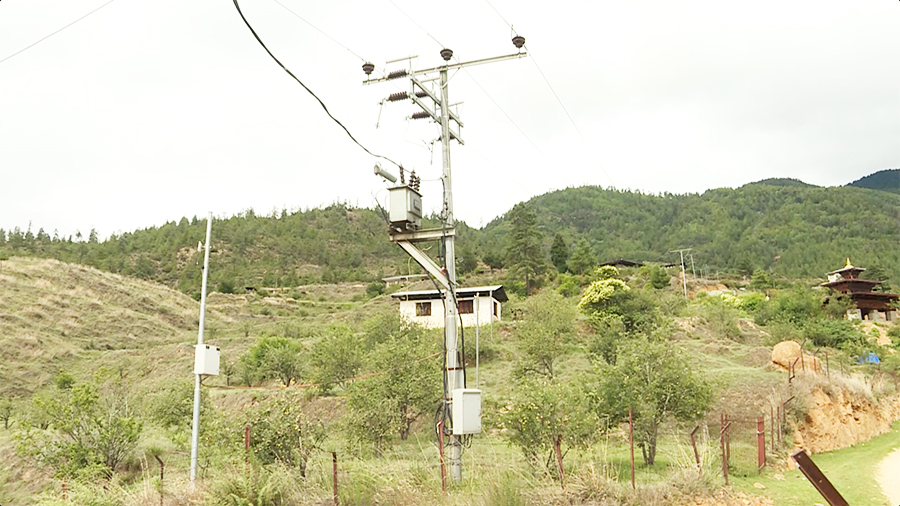
The Energy and Natural Resources Ministry’s report reveals that some 9500 acres of private land are likely affected by Bhutan Power Corporation, BPC’s transmission and distribution system. Energy and Natural Resources Minister presented a brief report on the impact of transmission and distribution lines in the National Assembly today. During the last session, the National Assembly asked the ministry to develop a proper system to manage damages caused by electric poles and wires falling on farmland.
The report shows that more than 12 thousand private plots across the country are affected by transmission lines. More than 1000 transmission towers were constructed on those lands.
The minister reported that BPC has completed relocating close to 400 distribution systems in the last three years. This has incurred Nu 94 M.
“Relocating transmission wires and poles on private land is challenging. The Bhutan Power Corporation and the government prioritize government land for such moves, resorting to private land only if necessary. However, shifting transmission lines is costly. It exceeds Nu 15bn. Relocating distribution lines and substations is estimated to have cost around Nu 7bn,” said Gem Tshering, MoENR Minister.
He added that providing land replacement is not doable.
Some members of parliament, however, said the study is not comprehensive and does not provide clear solutions to resolve the issues.
They suggested introducing a lease system for private land, where BPC would lease private land for electric poles and transmission infrastructure construction.
“The minister’s proposed solutions seem impractical and unlikely to effectively address the issue. The high costs associated with relocating transmission lines, coupled with the challenges of acquiring land for replacements, underscore the difficulties involved. To prioritize safety, an underground cabling solution, as implemented in other countries, could be a viable alternative,” said Pempa, Bongo-Chabchha’s MP, Chhukha.
Nganglam’s MP Lamdra Wangdi said, “Leasing land to individuals could be a viable solution, as they may be open to the idea, particularly given that they already pay land taxes without receiving direct benefits. A lease arrangement for acquiring private land could offer a practical approach to addressing the current situation.”
“When developing a new right-of-way policy, it is essential to engage a diverse range of stakeholders to ensure the policy benefits the public,” said Radhi-Sakteng’s MP Tashi Tenzin.
The minister agreed to present a comprehensive report including the suggestions made by the members in the next session.
Sonam Yuden
Edited by Sangay Chezom







